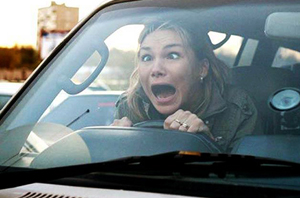New Delhi, Aug 4: The Union Cabinet on Wednesday approved the Motor Vehicle (Amendment) Bill, 2016, providing for hefty penalties for violation of road safety rules. The fine for driving without licence goes up ten times to Rs. 5,000 while penalty for drunken driving increases fivefold to Rs. 10,000.
 The decision was taken at a Cabinet meeting chaired by Prime Minister Narendra Modi.
The decision was taken at a Cabinet meeting chaired by Prime Minister Narendra Modi.
"The important provisions include increase in compensation for hit-and-run cases from Rs. 25,000 to Rs. 2 lakh. It also provides for compensation up to Rs. 10 lakh in road accidents fatalities," an official release said.
The Cabinet also recommended that for persons without helmets the new proposed penalty would Rs. 1,000 apart from suspension of licence for three months. The current penalty is Rs. 100.
For seat belt violation, new proposed penalty is Rs. 1,000, up from Rs. 100.
For driving without insurance, the proposed penalty is Rs. 2,000, up from Rs. 1,000.
For offences by juveniles, the guardian/owner shall be deemed to be guilty. They will have to pay a penalty of Rs. 25,000 apart from three-year imprisonment. The juvenile will be tried under the Juvenile Justice Act and registration of his or her motor vehicle will be cancelled.
The bill provides amendments in various penalties. While the old penalty for violating road rules was Rs. 100, the new minimum penalty is Rs. 500.
Similarly, the penalty for speeding was Rs. 400, but the proposed penalties for LMV (light motor vehicle) is Rs. 1,000 and for medium passenger vehicle Rs. 2,000.
The new proposed penalty for unauthorised use of vehicles without license would go up to Rs. 5,000 from Rs. 1,000.
For travelling without ticket, new proposed penalty is Rs. 500 which goes up from Rs. 200.
For driving despite disqualification, the new penalty is Rs. 10,000, which is now Rs. 500. The new proposed penalty for dangerous driving would go up to Rs. 5,000 from Rs. 1,000.
For disobedience of orders of authorities, the new proposed penalty is Rs. 2,000, compared with Rs. 500 at present.
The vehicle without permit will now have to pay up to Rs. 10,000. For aggregators (violations of licencing conditions) the proposed penalty would be Rs. 25,000 to Rs. 1,00,000.
The new proposed penalty for overloading is Rs. 20,000 and Rs. 2,000 per extra tonne. For not providing way for emergency vehicles the proposed penalty is Rs. 10,000. For overloading of passengers, the penalty would be Rs. 1000 per extra passenger.
"The bill also proposes to mandate the automated fitness testing for the transport vehicles with effect from 1st October 2018. This would reduce corruption in the Transport Department while improving the road worthiness of the vehicle," said the statement.
"The penalties are also proposed for deliberate violation of safety/environmental regulations as well as body builders and spare part suppliers," it added.
For overloading of two wheelers, new proposed penalty is Rs. 2,000 and disqualification of licence for three months. Currently, the penalty is Rs. 100.






Comments
It's a must...good move..
But our policemen will benefit from it.....100 rupee Rishwat will be 300..first impose heavy punishment for bribe demanding policemen...
N Modi will plan world tour soon in the coming months. Yahooooo . Good that there will be less accidents and Jai Modi ji Jai Ho
MAKE IN INDIA ...........
Add new comment